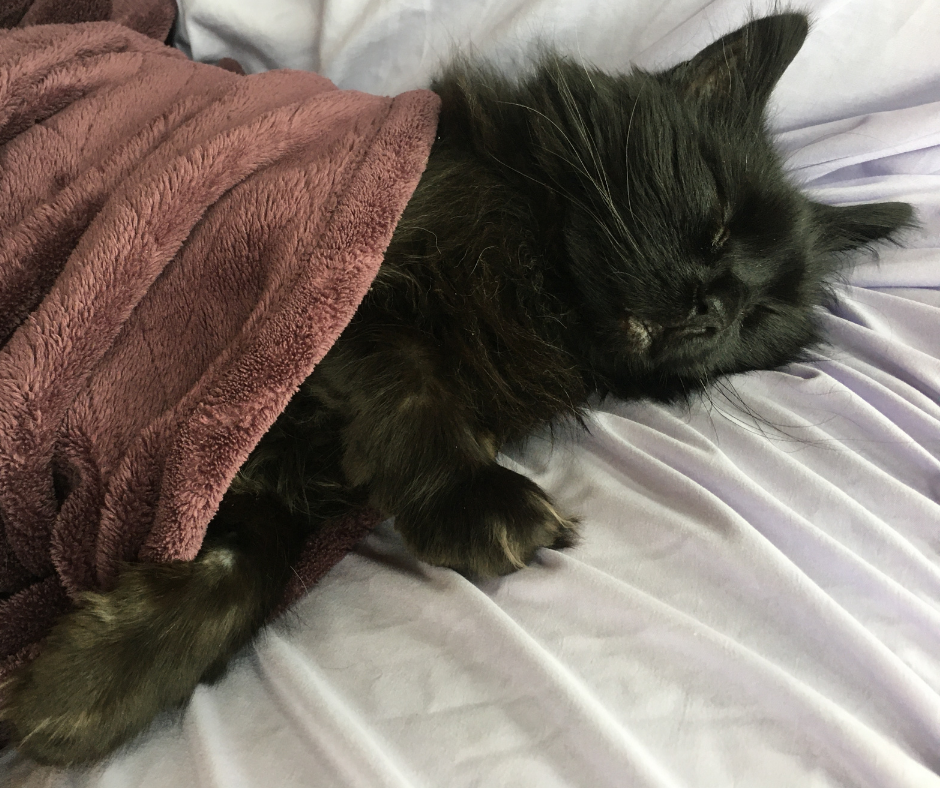Cat Diarrhoea – Causes and Remedies

Tummy trouble in your cat is no picnic. We take a look at causes and remedies for cat diarrhoea and what you can do to help.
New Diet
First, let’s consider your kitty cat’s diet. A sudden change in cat food can cause diarrhoea. Cats accustomed to a particular diet will more than likely develop diarrhoea in reaction to a sudden change. This is especially true if they have been on that diet for a long time. A cat’s gut becomes used to processing these same foods every day. It simply struggles to digest anything different, even if it is food of the highest quality.
If you think a sudden change in diet has caused your cat’s diarrhoea, try this remedy. Give your feline a short break from eating of six to eight hours, remembering to always leave out clean water for them to drink. Then offer a meal consisting of plain cooked lean chicken mixed with a little boiled, mashed sweet potato or pumpkin. The lean chicken won’t irritate their gut like fatty meat might, and the sweet potato will soothe any irritation. Avoid anything carby; carbs inflame a cat’s gastrointestinal tract, which is the last thing they need. If you suspect your cat has ingested something unusual, try a feline dose of activated charcoal to absorb any remaining nasties in the gut and allow them to pass undigested. Other natural remedies include peppermint and slippery elm, though these can be tricky to administer.
Once they have recovered, introduce the new food gradually over a period of weeks — even months for very sensitive tummies. Substitute 25% of the new food into the old, mix it well and see how your cat’s gut copes with that before increasing this amount by 25% after a few days of normal bowel movements. Ensure your cat is eating, though. Being creatures of habit, cats would much rather not eat at all than to consume something too different, leaving them in danger of developing liver problems from long-term fasting. If your cat rejects the new mixed offering, reduce the proportion of new food and go even slower.
Variety Is the Key
Variety is the key to a stronger cat gut. Cats are designed to consume a high protein, high fat diet. Aim to provide meals consisting of chicken alternating with beef proteins, a variety of consistencies including seafood, liquidised proteins and dry cat biscuits, and a mix of both commercial and natural homemade foods. This will in time increase the resilience of the gut. A stronger gut ensures better digestion of different foods — and the sooner you begin, the better for your cat. Dr. Joseph Bartges from the University of Georgia specialises in veterinary nutrition. He feeds his kittens a varied diet including raw egg, a variety of fish, commercial wet and dry food, and a dose of fresh meat mixed with kale, every day.
Bowel Issues
If a new diet isn’t to blame for your feline’s runny tummy, the consistency of the bowel movement can offer some clues as to whether there’s an issue in the small bowel or large bowel.
Large, watery, frequent stools occur if there’s problem in the small bowel, which could then transfer into the large bowel.
If there is a problem in the large bowel, the runny stool will be smaller, and likely contain mucous. Blood in diarrhoea stools could stem from either the small or the large bowel. Black or dark diarrhoea usually means there is a problem in the stomach.
Cats are not big on drinking water. Dehydration is always a concern for cats experiencing a bout of diarrhoea, especially kittens and seniors. Ensure they have plenty of access to drinking water.
There are many causes and remedies for cat diarrhoea. Repeated episodes lasting longer than two days accompanied by vomiting or lethargy require an immediate trip to your veterinarian. Parasites, infection and disease can cause diarrhoea, necessitating veterinary testing. Read more about Cat Emergencies to Attend to Immediately.
